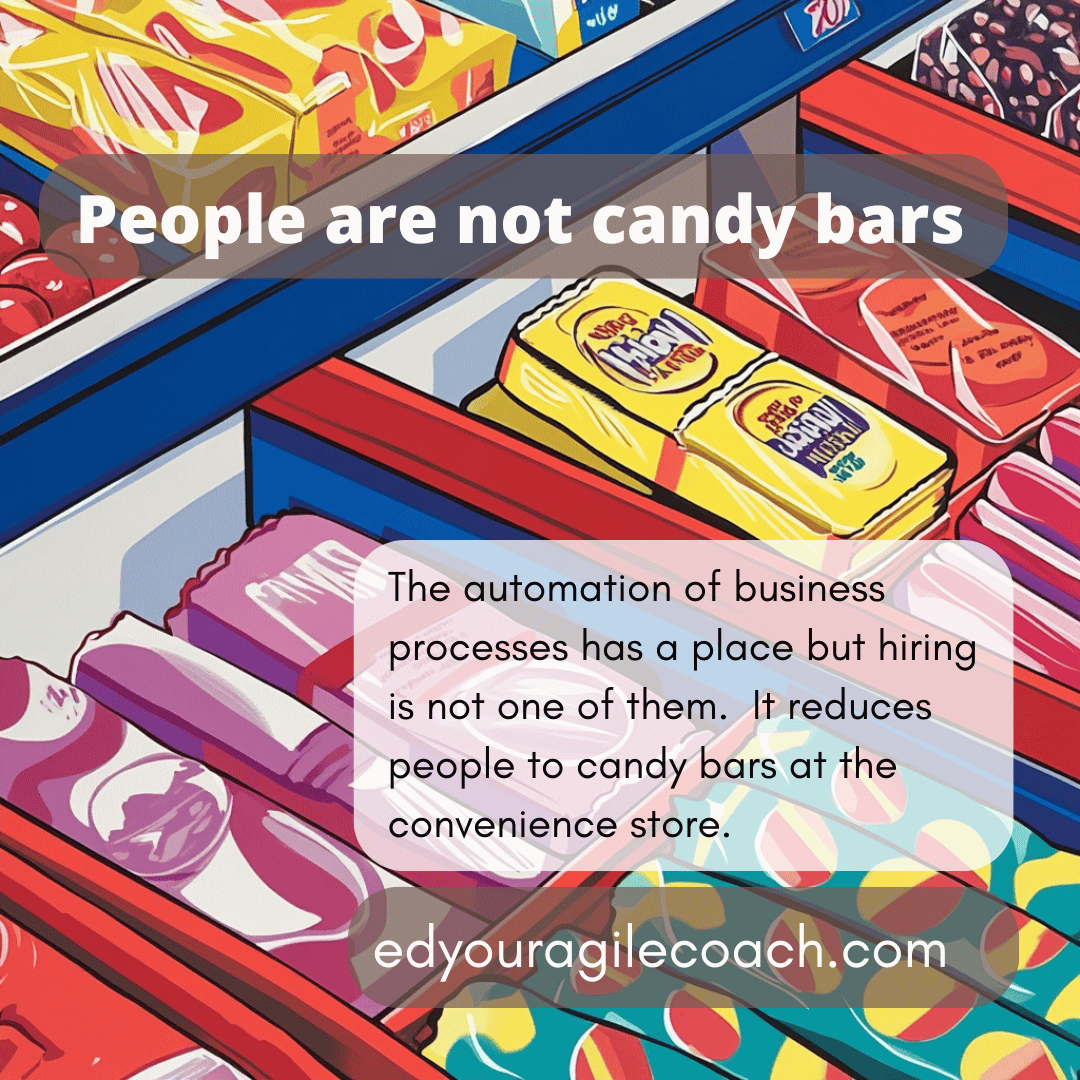Learning to respect the process and the harsh realities of automation.

Being a white-collar professional looking for work can be lonely. You spend years learning to lead teams, navigate corporate bureaucracy, and deliver value. You are now compelled to file applications, network, and maintain your sanity. It does not help that we have a glut of technology workers on the market and that many business leaders feel uncertain and confused about the present business environment. I am struggling with this situation and want to discuss it with you.
When I talk about my career, I often describe it as a series of misadventures. Technology is filled with knotty problems, colorful characters, and unrealistic expectations. It is also a profession with a scarcity of talent, which means the people who do the work are expensive for business people to hire. This creates unrealistic expectations regarding software product construction because many business leaders think that technology is magic instead of hard work.
The Rise of Automation –
In an effort to save money, organizations are attempting to automate any process to reduce the number of people they must pay to accomplish business goals. It explains why most medium-sized businesses or larger have automation systems to answer the phones. It also explains why many call centers are located off-shore in other nations. Automated teller machines at banks and ordering kiosks at fast food restaurants are examples of this trend where computerized systems replace human interaction. Business leaders call this a reduction in friction between buyers and sellers, but it also limits options, and these automated systems struggle with ambiguity. For instance, you can only access $200 of a bank deposit when you place it into an automated teller machine because the deposit needs sufficient funds, and it takes time for the banking system to confirm funds.
Now, we are seeing automation creeping into back-office jobs. Customers exchange information digitally using Electronic Data Interchange transactions or EDI. Computer systems create these EDI transactions and transmit them over the internet to vendors, who consume them to create invoices, bills of lading, and orders in their systems. The automated process has limited human review. It is just computer systems communicating with other computer systems. It explains how your local gas station and convenience store maintains its fuel, soft drinks, and beef-jerky inventory without the store manager taking nightly inventory. Each product scanned at the cash register, including gasoline at the pump, becomes a line entry for an EDI transaction.
If we reduce the friction between buyers and sellers of goods, we see the same thing happen with the providers of services or labor. Human resources is expensive, and vetting and screening people who want to work at organizations takes time and money. Thus, systems are created to consume job applications and resumes for roles. Unfortunately, these systems do not create efficiency but generate more friction between employers and job seekers.
For instance, according to an article from the International Business Times, a manager could not find a replacement for an employee who quit for three months. They decided to create a faux resume and submit it to their hiring system. The system rejected it immediately. It appears that a typographic error, lack of human supervision, and ambiguous requirements led to all applicants getting rejected for the role. Naturally, the company responded to this news by firing everyone involved in setting up the hiring system.
My God! What have we done? –
On balance, automation is a net positive. When used in the correct situation, it can both lower costs and improve service. Unfortunately, we are using automation, particularly hiring people who deliver value in sloppy and inefficient ways. The previous story about a broken hiring process is one of many examples documented on the internet.
What I think is more discouraging about this is that many companies do not care how easy it is to find talented people to deliver value during these challenging economic times. Ghost jobs are typical in the professional market, and executives demand fewer people to do more work. It explains why the average job search is now five months long. Companies do not have the sense of urgency many job seekers have.
It creates insidious behavior among hiring people. Workers are no different than those bags of beef jerky or candy bars we purchase at the gas stations. Instead of valuing people who create value for organizations, we ruthlessly buy and barter them as commodities. We reduce messy humans to commodities instead of following the Agile Manifesto and treating people individually.
I am impatient to return to work. My family counts on me, and my self-concept has suffered because I feel like I am not contributing to society. During the dark moments, I remind myself to trust the job-searching process. I also point out that dealing with this unavoidable suffering is granting me existential purpose. It is not a steady paycheck, but lean times require the most basic forms of nourishment.
I am still confused and struggling, but I am doing my best. My friends and colleagues tell me that it is a valuable experience. Wisdom and learning are difficult; fortunately, sharing my insights might help others overcome their difficulties. It helps keep the loneliness at bay and lets us see that many of us are in the same strange situation.
Until next time.




Comments ()